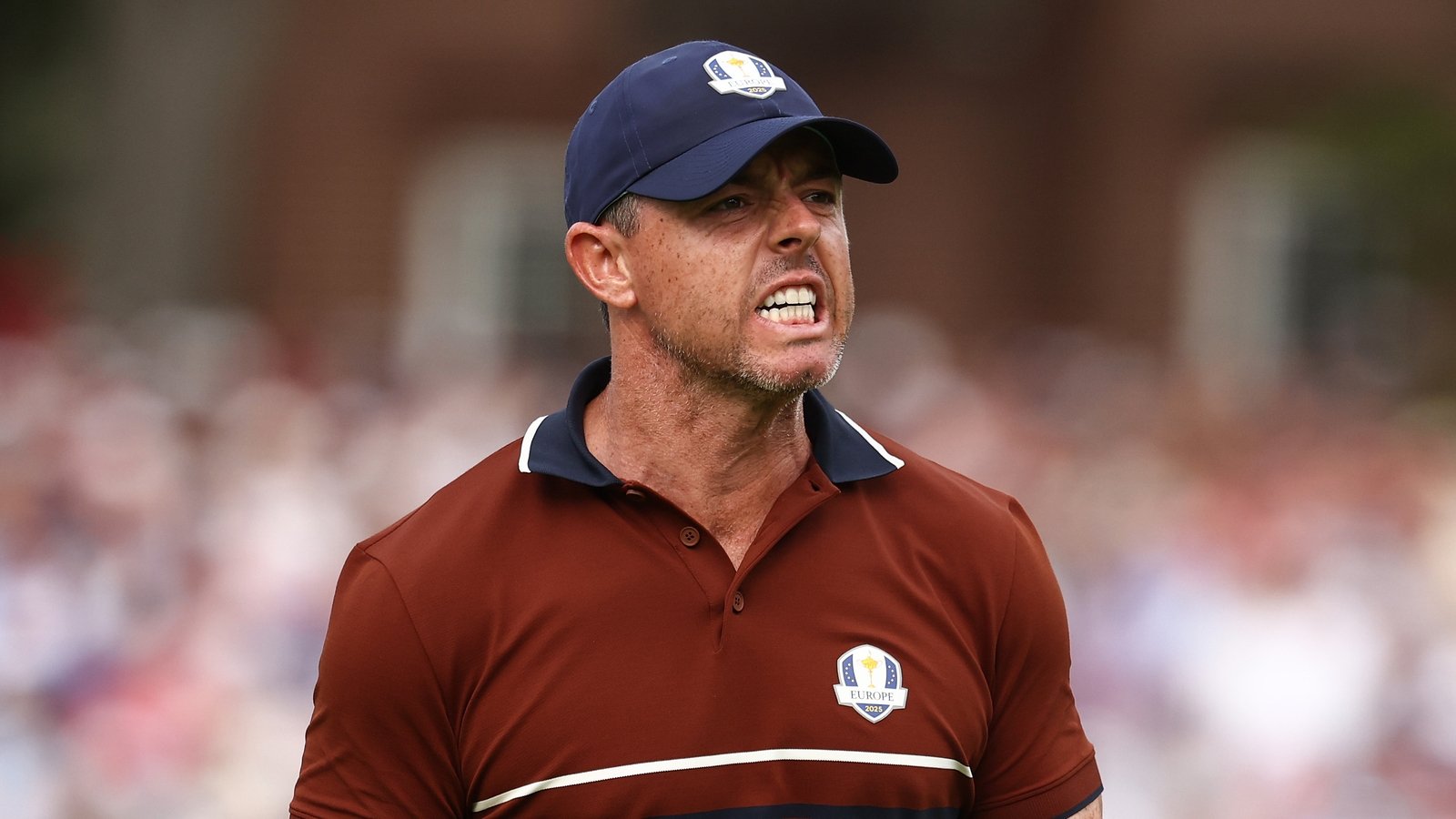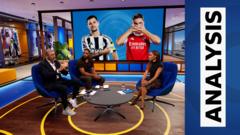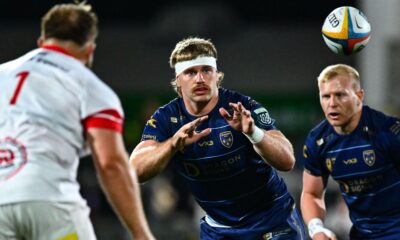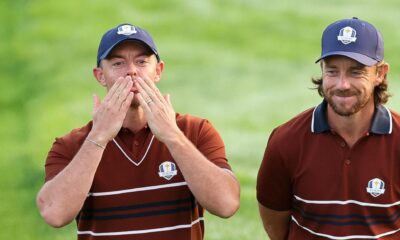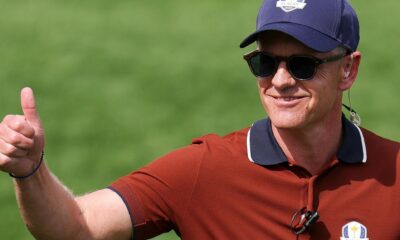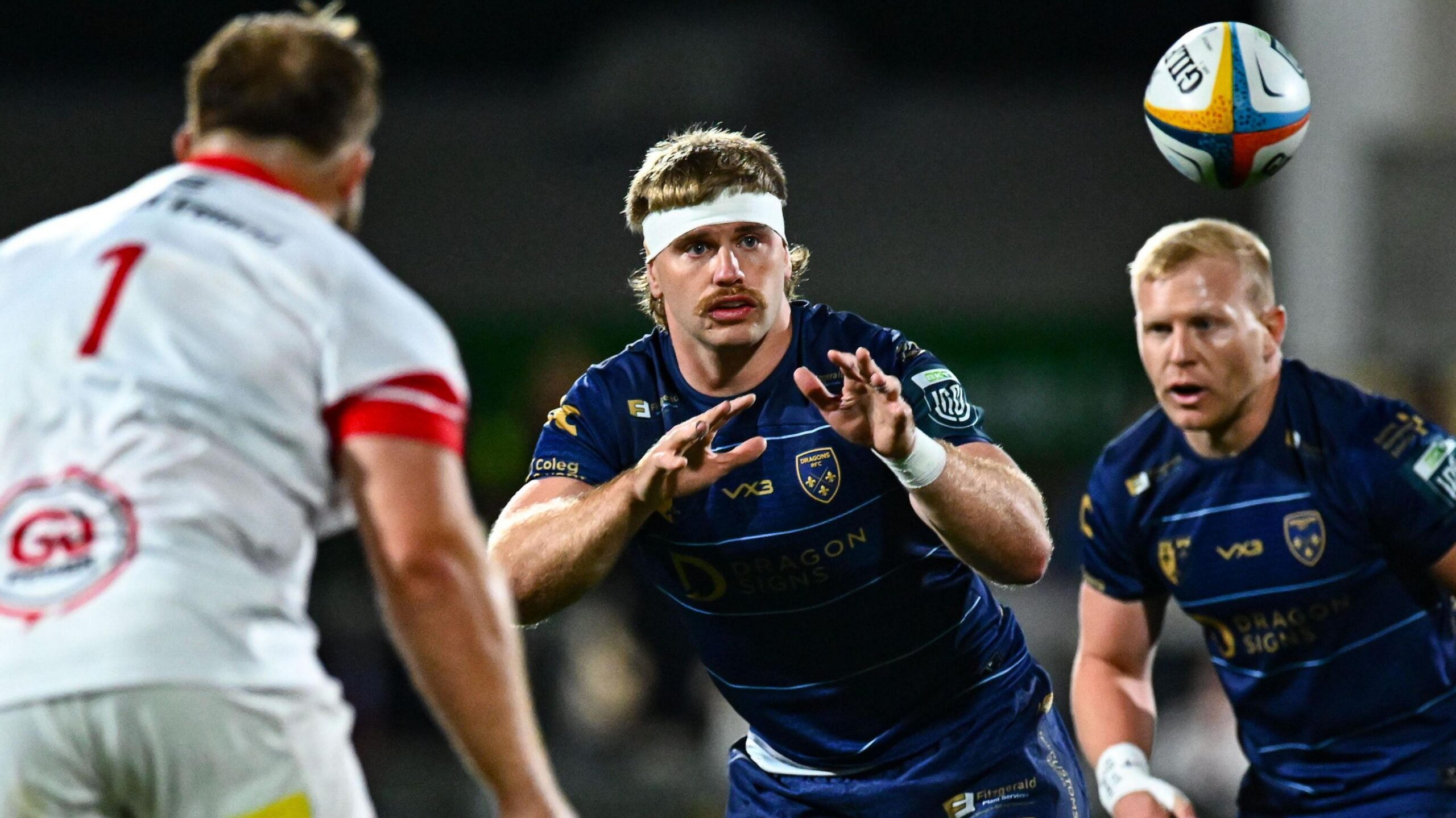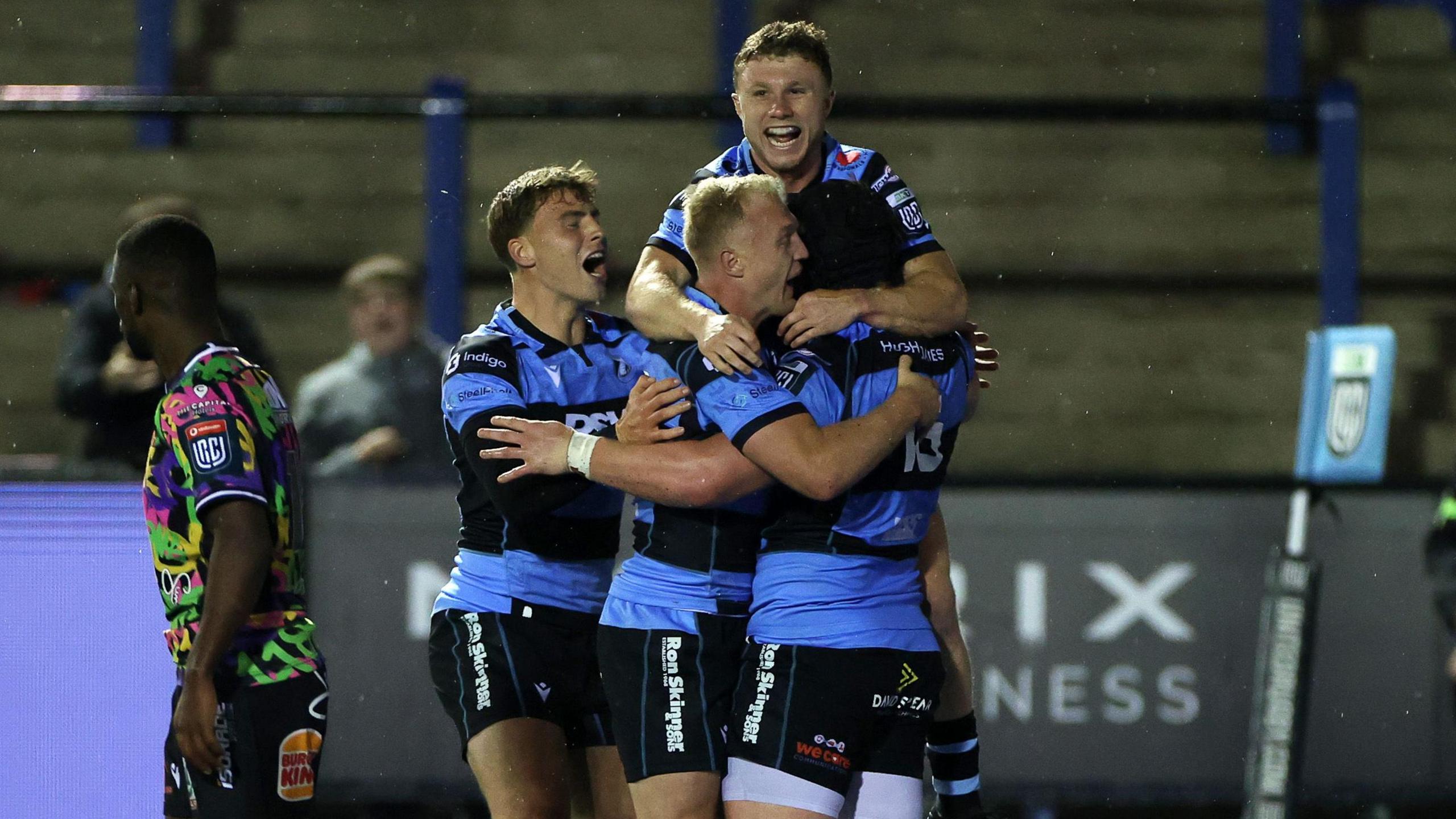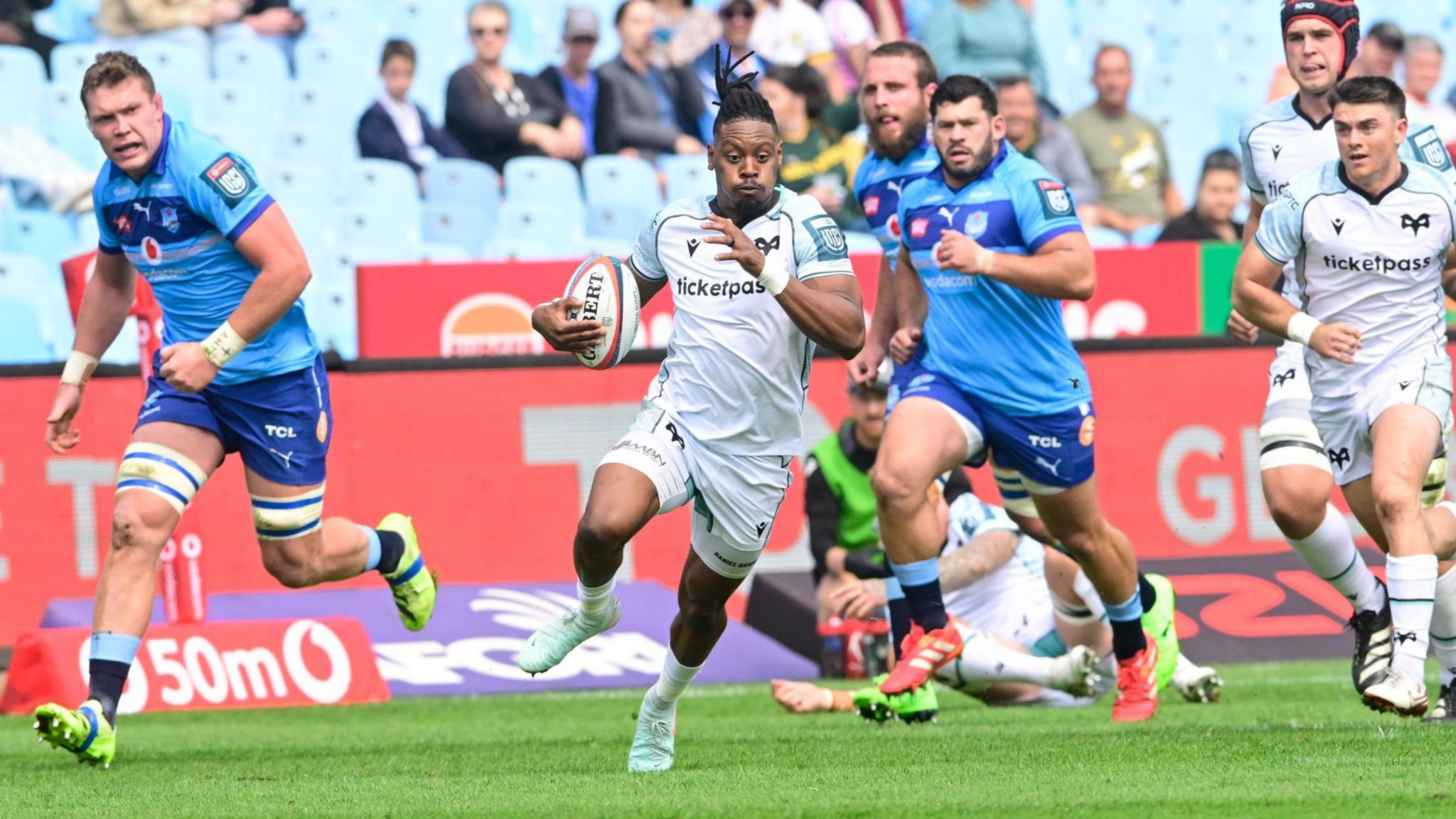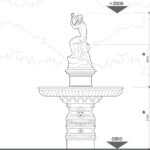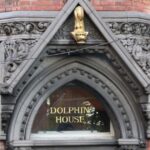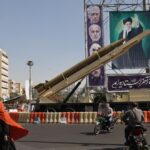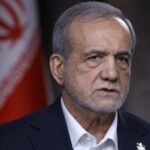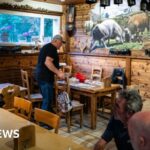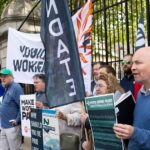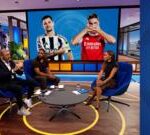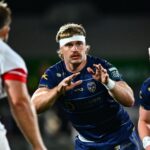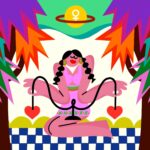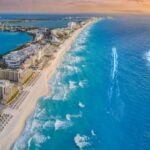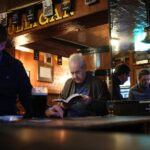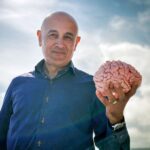THE TITLE OF the book is self-explanatory; ‘Ó Sé’.
Marc Ó Sé’s autobiography may be the most revealing of a Kerry footballing family, it explores depths and casts wider than any previous books around the clan.
Having retired in 2016, it has taken him almost a decade to get round to putting down his thoughts, beliefs and yarns around football, family, culture and the feel of west Kerry.
It’s worth the wait.
BROTHERS in Arms.. O’Se football legends Feargal, Tomas, Marc and Darragh at launch of Marc’s autobiography in @MeadowlandsHot tonight.. Massive turnout.. @Gill_Books @angaeltacht @Kerry_Official @CrokePark pic.twitter.com/UjN4NXL6XT
— macmonagle (@MACMONAGLE) September 25, 2025
*****
Declan Bogue: I’m always curious about anyone’s reasons for bringing out an autobiography, what are yours?
Marc Ó Sé: I suppose I was asked to do a book when I retired and I felt at that stage, it was maybe a bit too close to when I was playing. At the time I might have felt differently about stuff and I got a bit of advice.
I decided to sit back and sit tight for a while. That’s what I did. Maybe a year ago I was approached and I said, ‘You know what, not a bad idea at all.’
To answer your question, (it was) maybe something for my kids to have. To tell my story because everyone is different and my story was different to the lads in that coming into it, maybe I didn’t have the same belief that I could make it.
I don’t know, but that’s how it felt to me. Was I good enough? That was the question I had.
Then, you look at the west Kerry area, the music, the culture, the Irish language, the landscape, the Ghaeltacht, Cáid, I think all of that.
The music was a big thing as well. That was a big part of my life growing up, watching the musicians coming into Páidí’s pub and all of that. All of that was huge.
DB: Most people wouldn’t have been aware of just how much you were into playing traditional music. But there you were playing with Steve Cooney and Seamus Begley every Sunday night in Páidí’s, and they are considered as among the greatest ever exponents of the art.
MÓS: Then for Begley to take his break and have a pint of Guinness and for him to give me his accordion! The straps were too loose for me so he used to get an empty bottle of Coke and tied the straps together to tighten it around my back.
So, I am playing tunes there with Cooney on a Sunday night in Páidí’s long past my bedtime and the place is rocking, the two of us going at it. It was just magical to be totally honest with you and it gave me a huge lift. As much of a lift as I would have had playing Gaelic football in Croke Park or Fitzgerald Stadium.
Those were magical Sunday nights. Going across the road and of course my dad was there as well, it wasn’t as if I wasn’t supervised.
DB: There’s a jibe that someone said in the pub that he believed your father Michael Ó Sé was raising three footballers and a musician that cut deep. But it might also have given you a confidence?
MÓS: Oh yeah, quite possibly. I used to perform in competitions, not that I ever won anything but I performed in competitions at the Oireachtas and I enjoyed them and going to wherever it was.
I had a very good teacher from Dingle, he was also my History and Maths teacher. He played the piano accordion himself and he was excellent and he gave me great help for six or seven years, every Saturday morning for a couple of hours.
Every year I went there I got better and better as time went on and then I used to play in the pubs in west Kerry when I was 16, 17.
It was enjoyable and fun and making a few bob doing it as well. But I was very shy doing it. I remember one night, Noel Murphy of Murphy’s Pub in Ballyferriter, he had to tell me to ‘Turn around now Marc and face the audience.’
DB: The influence of your father and Páidí is so prevalent. It’s a tremendous pity that both of them were taken so young, especially when you were at such a tender age.
MÓS: It’s awful that they passed away so young, because of what they missed out on, with grandchildren, weddings and big family affairs. They were huge family people themselves.
They were taken too early and it is an awful shame.
But when they were around, they packed so much into their lives. They left such an impression on us that there is still their spirit alive. And there’s no doubt about that because they left a huge impression on us, my Dad, Páidí, and Tom.
We often talk about them still, every day.
They will always be alive in our house as long as we talk about them and remembering them with the fondness we do. We were very lucky to have them for the amount of time that we did.
Sometimes you see families and the difficult situations they have at home. We grew up with love and happiness and laughter. By God, how many families crave for that?
It’s something that we were blessed with.
DB: A lot of the attention on the book is going to centre around your relationship with Jack O’Connor. But I laughed hard at the line when he said he had someone identified you drinking in Páidí’s after the win over Sligo in 2009, and you told him to put that man in front of you and you would call him a liar. I mean, talk about telling a lie with complete conviction!
MÓS: Well, you see, my thinking behind it at the time was maybe that I knew I was putting Jack into a position where he couldn’t rat your man out.
But if he had have put your man in that position, he was in big trouble!
DB: It’s often thought that managers and players, even team mates among themselves, are best friends. But that’s seldom the case.
MÓS: I don’t see Jack much, but if I saw Jack there would be no problem. There would be no hassle whatsoever.
Jack wrote his book and said what he said. I didn’t bring it up with him. I felt he was possibly wrong in what he said but again, I wasn’t losing sleep over it. And I don’t think Jack is going to lose any sleep over my book.
It is what it is. We had a working relationship and I think Jack knew he could count on me for the job that I was given. That was my whole point, I was a professional football for June, July and August.
That’s the way I looked at it because I wasn’t working for those months. Everything was geared for training. All of it went into training and being the best I could be.
I found it a bit of a challenge in September when I went back to work because fatigue would set in. I know some people would laugh at that now, but fatigue would set in and I would get run down that month and get the odd cold and chest infection, which I feckin’ have now.
But to be told that we (the Ó Sé brothers) were hard to handle… That was the only bit.
I know people look at it now and scrutinise it. But there’s loads of things I mentioned in the book and that’s just one, but people tend to zoom in on that.
I made no big deal about it. I took exception to what was said, that the ÓSé’s were hard to handle, and I moved on. I wasn’t going to be waiting for Jack outside his car some evening after training, ‘What do you mean by that?’
You just drive on. I don’t hold any grudges.
DB: It became comical how you avoided the sports psych that Jack introduced to the camp. But Darragh said the same before, that if it could help a player, then he was all for it. Just not for him. And that’s the same for you.
MÓS: I knew that if I was physically fit, then my mind wouldn’t be too far behind it.
I used to love the month of April because the ground would harden up and I knew I would be able to get out ahead of the forwards and get a break of the ball and get there first.
That was my game. Simple. Simple. And I didn’t need a head guru to tell me what the story was.
And again, Darragh said that too, and I do see players who do need that help. If it’s something like being a freetaker who misses a chance or whatever it is, if there’s fellas who can avail of that help there to get that extra percent, I would be totally availing of it.
But yeah, everyone is different. Everyone’s make-up is different and that’s my philosophy. It was no big deal at the time. Your man was a lovely fella who Jack brought in. And Eamonn brought in fellas after that too.
It just wasn’t for me and Eamonn didn’t force it on anybody and maybe that was the point.
DB: There’s a tinge of disappointment at the end of your county career, with the final season fizzling out and injuries and illness. But then you must look at Patrick Horgan retiring this week and think you did alright out of it?
MÓS: If you had this conversation with somebody from Mayo, they might take a swipe at you.
But I totally get it. I was very lucky to have a great career in terms of being fit and ready and not having injuries. That definitely helped.
To play with the players I played with…Of course you look back at your last year and you look at it now, maybe that was why it took time for me to write the book.
You look at it now and say, ‘Marc, you were slowing down.’ But you just don’t see it at the time.
I was saying to myself that I could do a job. As a sweeper or wherever it might be and that’s just natural maybe.
You look back on it and you see how lucky I was to play with the players I played with. Players I played against. Very lucky. I count myself lucky to put on that Kerry jersey. And the cherished memories. The memories we took, good days and bad, funny days when you look back on it.
DB: There is a tremendous scope in this book with culture, the language, the football, the geography, it’s all crammed in brilliantly.
MÓS: West Kerry shaped me. Cycling to training (to Gallarus, the grounds of An Ghaeltacht), it was eight miles there and back in hail, rain and snow.
Myself and Tomás on the bikes coming back again. All of that toughens you up a small bit.
Whatever it would take, 40 minutes, then training and you’d have to come back again. You’d be gone for about four hours from the house. But that was from 11, 12, 13. All of that helped toughen us up and it came from breathing that west Kerry air.
I always remember going up to Seán Boylan, I remember one time I had glandular fever and one of the things he said to me going out the door was to never forget where you came from because not many people get to breathe that beautiful sea air. That coastal air is magical. And he was right.
*****
- Ó Sé is written with ghost writer Adrian Russell and published through Gill Books. It is out now.

